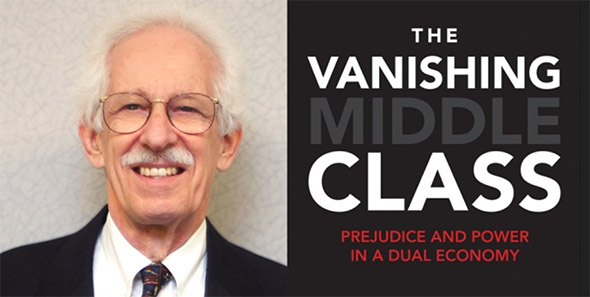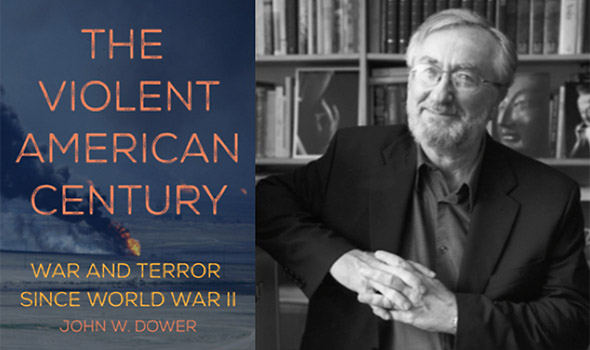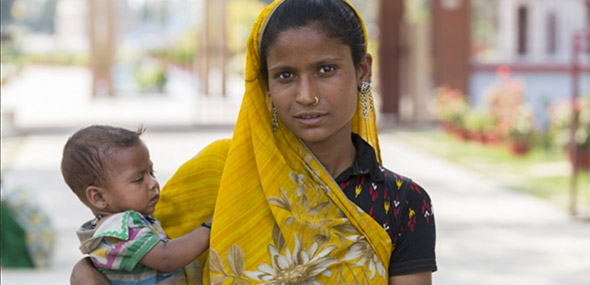Said and Done | Research | Summer 2017

Full Summer 2017 edition of Said and Done
URBAN TRANSPORATION
A simple solution for terrible traffic | Olken, Kriendler
“HOV policies on central roads were making traffic everywhere better, both during the middle of the day and on these other roads during rush hour,” MIT economist Ben Olken observes.
Story at MIT News
DEVELOPMENT ECONOMICS
J-PAL North America partners with local governments to tackle homelessness and reduce incarceration
Selected cities and counties will receive funding and technical support from J-PAL to test innovative strategies in the fight against poverty.
Story at MIT News
POLITICAL SCIENCE | ENERGY POLICY
Bolstering public support for state-level renewable energy policies | Warshaw
New research by MIT political scientist Warshaw and Leah Stokes PhD '15, shows that the design and framing of renewable energy policies can strengthen public support. Learning about the clean air and job creation benefits increases public support for renewable energy policies.
Story by Peter Dizikes at MIT News

MENS ET MANUS AMERICA
Breaking through gridlock: Productive conversations in a polarized world | Jason Jay
The Mens et Manus America initiative at MIT concluded its inaugural year with a presentation by Jason Jay of the MIT Sloan School of Management, who shared his research on how to have productive conversations with those with diametrically opposing viewpoints. "We change larger conversations by changing one conversation at a time," says Jay, who outlined findings from his book Breaking through Gridlock: The Power of Conversation in a Polarized World, co-authored with Gabriel Grant.
Story by SHASS Communications | Book: Breaking through Gridlock
DEVELOPMENT ECONOMICS
Study: Preschoolers learn from math games — to a point | Esther Duflo
Games found to improve conceptual math skills, but gains may not carry over to primary school.
Story at MIT News by Peter Dizikes
INEQUALITY | ECONOMICS
America's two track economy | Peter Temin
Peter Temin, an economics professor at MIT, tackles the causes of poverty in the United States. In The Vanishing Middle Class: Prejudice and Power in a Dual Economy. Temin examines racism and substandard education, as well as the lack of a proactive infrastructure program. And he proposes solutions: expanding access to public education, investing in infrastructure, and forcefully confronting institutional mechanisms that perpetuate racial inequality.
Story at MIT News by Peter Dizikes | Story at The Atlantic | Story at Salon | Commentary at Times Higher Education

"The link between the two parts of the modern dual economy is education, which provides a possible path that children of low-wage workers can take to move into the FTE (finance, technology, electronics) sector."
— Peter Temin, Elisha Gray II Professor Emeritus of Economics, author of The Vanishing Middle Class, Prejudice and Power in a Dual Economy
DEVELOPMENT ECONOMICS
Stopping the revolving prison door
J-PAL North America tests innovative strategies to reduce recidivism and help inmates transition back to society.
Story at MIT News
HEALTH ECONOMICS
Hospitals that spend more on emergency care yield better outcomes | Gruber and Doyle
Investing more in inpatient care relative to longer-term nursing facilities reduces mortality rates. Hospitals that spend more on initial care following patient emergencies have better outcomes than hospitals that spend less at first and rely more on additional forms of long-term care, according to a new study co-authored by MIT economists.
Story by Peter Dizikes at MIT News
POLITICAL SCIENCE | NUCLEAR FORCE
Vipin Narang: On the brinkmanship beat
Narang, an assistance professor in the Department of Political Science studies the strategic use of nuclear force as global tensions threaten to reach the boiling point.
Story by Political Science
HISTORY | WAR AND SECURITY
Is the Pax Americana truly peaceful? | John Dower
Dower, the Ford International Professor Emeritus of History, has won the Pulitzer Prize and National Book Award as part of a career spent writing about topics such as the extreme brutality of World War II combat and the reconstruction of postwar Japan. Today, when he looks at matters of war and security, Dower is skeptical that we have made much progress since then.
Story by Peter Dizikes at MIT News
“We’re in a perpetual cycle of violence in the name of preventing violence."
— John Dower, Ford International Professor Emeritus of History
SECURITY STUDIES | CYBERSECURITY
Patching the electric grid | Joel Brenner
"For the sake of efficiencies … we have created tremendous risk for ourselves," warns Joel Brenner, the principal author of the MIT report on cybersecurity. Now, he says, people are waking up to the danger.
Story at Technology Review
ABDUL LATIF JAMEEL POVERTY ACTION LAB + MEDIA LAB
Why do some neighborhoods improve?
The density of highly-educated residents, rather than income or ethnic composition, predicts revitalization.
Story at MIT News
EDUCATION ECONOMICS
Testing the metrics | Joshua Angrist and Parag Pathak
Researchers in the SHASS-based School Effectiveness and Inequality Initiative (SEII) refine the yardstick for measuring schools and teachers.
Story by Peter Dizikes at MIT News
GLOBAL POVERTY ALLEVIATION
How J-PAL thinks globally and acts locally
Can an effective antipoverty program work in different cultural and physical settings? A new report presents a user’s guide to a tough issue.
Story at MIT News
It is a huge question in development economics: If a program yields good results in one country, will it work in another? And why or why not? In a new article, two J-PAL directors unveil the lab’s approach.
CENTER FOR INTERNATIONAL STUDIES
Interview with Eric Heginbotham
Eric Heginbotham PhD '04, a leading political-military analyst of East Asia, is a principal research scientist at CIS. Before joining the Center, he was a senior political scientist at the RAND Corporation. In this interview, he discusses US-China relations, US allies in East Asia, North Korea, and what brought him back to MIT.
Interview at précis
CENTER FOR INTERNATIONAL STUDIES | STARR FORUM SERIES | IMMIGRATION
Fight over foreigners: visas and immigration in the Trump era
Justin Steil, assistant professor of law and urban planning at MIT, moderated the CIS Starr Forum. Steil's introduction, followed by an excerpt of his questions to the panelists, is featured.
Story by CIS
CENTER FOR INTERNATIONAL STUDIES
3 Questions: Justin Steil on the Trump administration travel ban
Assistant professor of urban studies and planning argues immigration is good for the U.S. and that President Trump's executive order threatens national security.
3 Questions: Story by Michelle Nhuch
IMMIGRATION
Threat perception and immigration reform in the United States | Marika Landau-Wells
Immigration reform proved to be a particularly contentious issue in the US 2016 presidential election. In some respects, the attention appears justified by the continued relevance of immigration for American politics.
Story by CIS
POLITICAL SCIENCE | STARR FORUM SERIES
The U.S. and Mexico: What’s the way forward?
MIT event offers look at how US-Mexico relations could revive. Over the past two years, U.S.-Mexico relations have taken a distinctive turn, stemming from the issue agenda President Donald Trump has brought to U.S. politics: Trump campaigned on building a border wall, and says he wants to change the North American Free Trade Agreement (NAFTA), which shapes the countries’ economic relations. The wall may not reach fruition, and it’s unclear whether NAFTA will be significantly altered, but these political stances have created a “fundamental tectonic shift in the relationship” between the U.S. and Mexico, observed Arturo Sarukhan, former Mexican ambassador to the U.S., at a public forum at MIT.
Story by Peter Dizikes at MIT News

